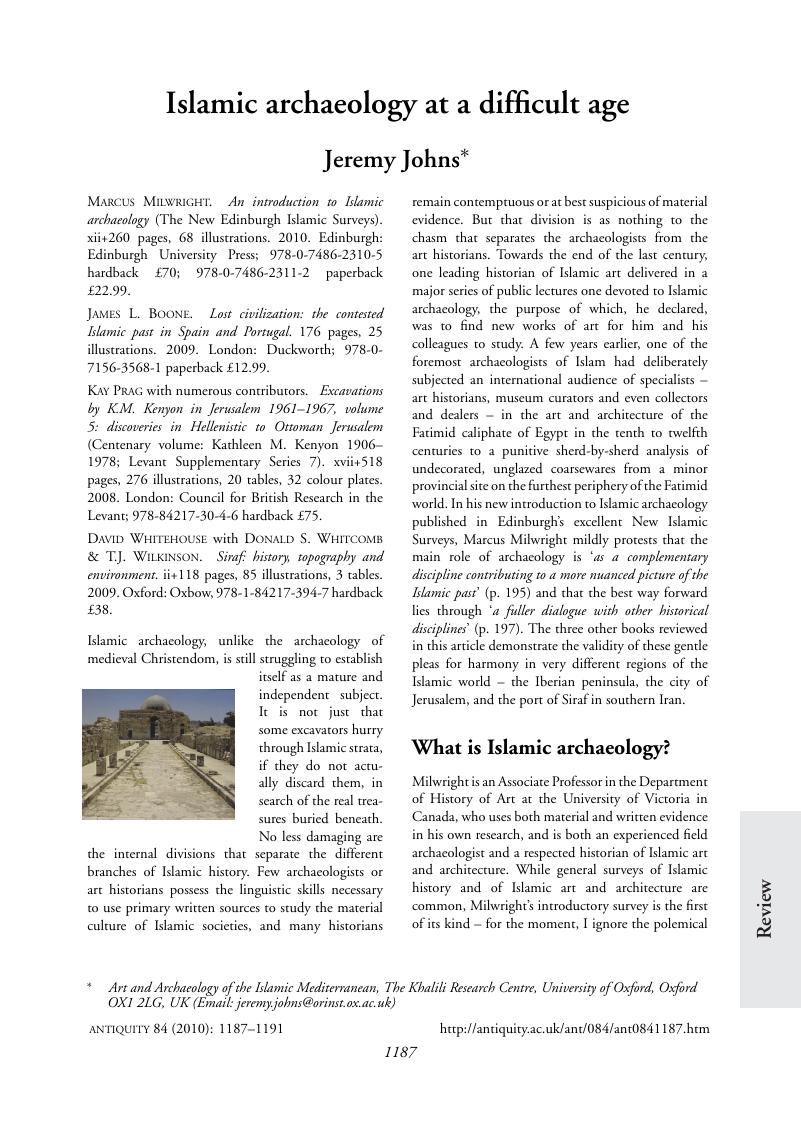Crossref Citations
This article has been cited by the following publications. This list is generated based on data provided by Crossref.
Kennedy, David
2011.
Recovering the past from above Hibabiya — an Early Islamic village in the Jordanian desert?.
Arabian Archaeology and Epigraphy,
Vol. 22,
Issue. 2,
p.
253.
King, Matt
2023.
An emir in the ruins of Carthage: the life and times of Muhriz Ibn Ziyad (d. 1160 CE).
The Journal of North African Studies,
Vol. 28,
Issue. 2,
p.
230.



